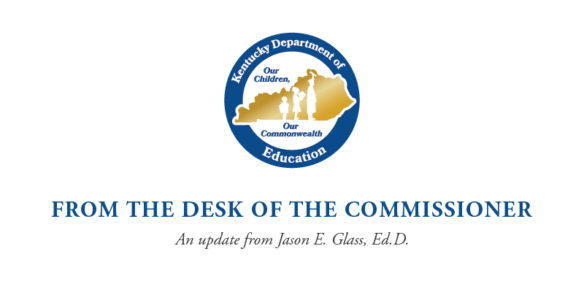
Throughout the course of my education career, I have engaged in numerous discussions on how and if schools should discuss and teach controversial topics with students.
Those arguing against taking on difficult and political issues in schools usually see the purpose of public education narrowly. One of these views is that schools exist to teach students essential academic knowledge and skills; educators should focus on teaching the basics in reading, writing and math. A similar view sees public education as a workforce and economic development tool and that schools should focus on preparing students for gainful employment.
Neither of these views is wrong. Public education does have a responsibility to provide students with basic academic knowledge, content and skills and to prepare them to compete economically. However, narrowly focusing on these views fails to capture another important purpose of public education in the United States, which is to prepare students to be participant citizens in our democratic republic. In Kentucky, both the General Assembly and Kentucky Supreme Court have recognized this requirement of public education in statute.
Thomas Jefferson wrote on the importance to our country of an educated and empowered people who would be able to recognize and correct abuses of constitutional power. John Adams wrote that education was the responsibility of all people and there should not be, “one mile square without a school in it, not founded by a charitable individual, but maintained at the expense of the people themselves.”
Public schools have a critical civic responsibility to prepare students, which means also preparing them to understand and work to resolve the kinds of complex and messy problems citizens ultimately must decide in the United States.
Schools that fail to engage students on difficult (and often political) issues – whether willfully or through negligence – also fail in their responsibility to cultivate our nation’s future.
The acts of insurrection and sedition that took place on Jan. 6 are such issues. While it may be tempting in this politically charged time to avoid discussing the matter altogether, doing so misses an important teachable moment for our students, where their interest and curiosity about what is happening presents an opportunity for genuine engagement.
Educators should discuss what happened in Washington, D.C., on Jan. 6, but should do so with a plan. Here are some tips educators could consider for initial conversations about what occurred.
- Cover the basic and verifiable facts. In this era of instant information with variable quality, time needs to be spent sorting out what we know actually happened versus rumor, conjecture and unverified conspiracy theories. While some element of direct instruction may convey this information most efficiently, overdoing it can rob an opportunity for meaningful student engagement. Your kids will want to talk about this, so find ways to support them in doing so.
- Be age appropriate. Concepts such as congressional procedure, the Electoral College and complex legal arguments can be daunting topics for adults. Younger children may be much more interested in the emotions and actions of the individuals they may have seen on television or the news. Middle school students may be more interested in elements of process or fairness. High school students may want to explore concepts such as equity and privilege. Teachers should use the relationships they have built with students to consider which aspects of the conflict might be most engaging and meaningful for their students.
- Create a safe space for emotional responses. The events of Jan. 6 involved anger, shouting and violence. This may trigger some students emotionally and they should be encouraged to identify and express what they are feeling. This should be received without judgment. It is OK to be angry or fearful and the student’s emotional reaction is valid, whatever it is. Schools also should make counseling and services available for students who need someone to listen and to encourage students to use that support.
- Encourage questions and answer honestly. Students likely will have lots of questions about what happened. Some of these questions may have straightforward answers. Other questions may be much more complex – and much more interesting. The unanswered questions will arouse student curiosity and more opportunities for learning.
- Use the event as a launching point for deeper learning. What transpired on Jan. 6 presents numerous opportunities to practice skills such as critical thinking, complex reasoning, effective communication and leadership. It also presents an opportunity to delve into important social studies knowledge, content and skills from several disciplines (civics, political science, sociology, psychology, etc.). Teachers and students could engage with problems or extended projects to create authentic learning experiences. The Collaborative Civic Spaces module is a free Kentucky Department of Education resource that examines the role of teachers and students in building a collaborative civic space, explores tools and resources to engage student voice in cultivating a collaborative civic space and provides instructional strategies to support current and controversial issue discussions.
The acts of insurrection and sedition from Jan. 6 are complex, uncomfortable and may evoke emotional and deeply personal responses. These are the exact kinds of issues our students will need to be able to process through and successfully navigate when they assume the mantle of citizenship.
Rather than shying away from this issue, I encourage educators to use this as an opportunity to engage with our students and turn the events of Jan. 6 into an opportunity for student learning.




Sedition is “conduct or speech inciting people to rebel against the authority of a state or monarch.”
Insurrection is “a violent uprising against an authority or government.”
These words describe all of the events referenced above. To go there as suggested is to open the proverbial “can of worms” as illustrated by the contrasting opinions presented. In many instances, this would or could contravene the opinions of parents or guardians, whose views should prevail or at least be considered in these matters. In some instances, the political views of teachers will inevitably come out and become persuasion. Whether right or left, it’s invasive.
Commissioner Glass,
Thank your for providing this advice for the teachers of Kentucky. It’s clear and concise. Many teachers will be happy to have this support. I’m sorry to see that you are also receiving negative comments. The truth is that information was provided to help teachers talk about the events of this summer. The truth is that the events of this summer and the events of January 6th are also entirely different. This summer the events were protests, and yes, some of those protests got out of hand and included looting and arson (which are both crimes, and must be treated as such). The events of January 6th began as a protest and got out of hand to become insurrection and sedition (also crimes, and very different crimes from looting and arson). Crimes of insurrection and sedition are crimes against the government – discussion of such crimes absolutely has an appropriate place in the classroom since schools are charged with teaching students how our government works. The protests of this summer, like all protests, were also appropriate topics because of the First Amendment, and of course it was also appropriate for teachers to help students understand that crimes committed during any protest (whether this summer or January 6, 2021) are still crimes. So, again, thank you for your post, and I’m sorry you are receiving any negative comments about it (but such is free speech). I applaud you and appreciate the support you are providing for Kentucky’s teachers on these events.
I feel it’s unfortunate that this is being brought up now, but wasn’t an issue throughout 2020 as violent “protests” took place in multiple cities in our country. I definitely do not condone the actions of the few from yesterday’s protests, but I also don’t condone ruining people’s businesses by looting/stealing/breaking windows, burning down buildings in several cities, attacking innocent people, assaults on police officers, etc that occurred on several occasions in 2020. I feel that it’s a fine line they’re walking having teachers discuss these issues with students because it will be difficult for teachers to keep their personal beliefs out of the conversations or to not judge students based on differing opinions/beliefs. I feel it’s my responsibility as a parent to discuss these issues with my child and I’d prefer teachers teach the subjects they are paid to teach and not bring up discussions with students about issues like yesterday when they haven’t addressed any of the issues from this past year.
I have discussed this with my children. That will suffice. The views given in the public schools tend to be quite one sided. My child was never told how the burning, looting, and rioting was wrong and how devastating those events were to so many innocent victims. They were however told about the injustices done to certain groups of people. What he was told was not wrong but did not give a complete unbiased account of every aspect of those events. Either be fair and tell the whole story or stay out of it.
Thanks, Dr. Glass. Wise words. And, yes, this is substantially different from a “protest”. These people illegally entered and disrupted a seat of the federal government, and tried to overthrow a presidential election, when the right and legal means of redress didn’t satisfy them. Thanks for the guidance on how to help our kids process!
I think your ideas for discussions with students on the events of January 6 are fine but shouldn’t it also include how to discuss the events that have taken place throughout this year in regards to violent protests took place and property and lives were destroyed? I don’t condone any kind of violence in any circumstance, however; why single out this one incident? Both sides of political and civil unrest should be considered. Just sharing a thought. By the way, I worked with the Board of Education in the Commissioners Office for 15 years along side of Mary Ann Miller and Kevin Brown. Best of luck in your tenure as Commissioner.
Thank you!!’n